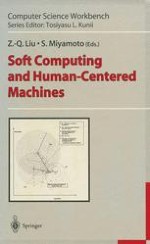2000 | OriginalPaper | Buchkapitel
Vagueness in Human Judgment and Decision Making
verfasst von : Kazuhisa Takemura
Erschienen in: Soft Computing and Human-Centered Machines
Verlag: Springer Japan
Enthalten in: Professional Book Archive
Aktivieren Sie unsere intelligente Suche, um passende Fachinhalte oder Patente zu finden.
Wählen Sie Textabschnitte aus um mit Künstlicher Intelligenz passenden Patente zu finden. powered by
Markieren Sie Textabschnitte, um KI-gestützt weitere passende Inhalte zu finden. powered by
In many situations we use vague or fuzzy judgment in forming our own opinions or making decisions. The vagueness or fuzziness is inherent in people’s perception and judgment. Traditionally, psychological and philosophical theories implicitly had assumed the vagueness of thought processes [25, 26]. For example, Wittgenstein [43] pointed out that lay categories were better characterized by a “family resemblance” model which assumed vague boundaries of concepts rather than a classical set-theoretic model. Rosch [18] and Rosch and Mervice [19] also suggested vagueness of lay categories in her prototype model and reinterpreted the family resemblance model. Moreover, the social judgment theory [24] and the information integration theory [2] for describing judgment and decision making assumed that people evaluate the objects using natural languages which were inherently vague.
